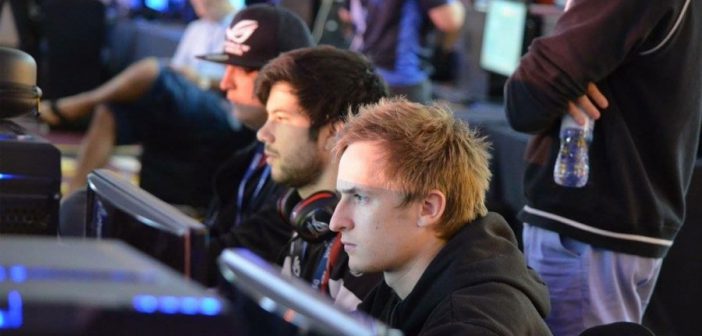eSports is a simple concept: competitive video gaming. One team of individuals compete against an opposing team in a particular game.
Despite its simplistic basis, easy access participation and desirable incentives have engendered eSports a gaming behemoth, catching the eye of gamers from all over the planet.

The 2016 Dota 2 International competition saw 16 teams (consisting of 80 players) battling for more than $20 million in prize money. Smaller prizes include Call of Duty XP Championship and ELEAGUE Season 1, a Counter-Strike: Global Offensive competition, which range from a $1.4 – 2 million cash prize.
You might think twice about telling your child to switch off their PC and go to bed tonight.

Astonishingly, eSports competitions are bagging more viewers than many major sporting events, including the NBA, with 100,000 people arriving to watch Intel’s Extreme Masters gaming tournament that was hosted in Poland. The event had more than 3.2 million social media engagements, and across social channels and live streams claimed close to 30 million unique users engaging with the published content.
It is no surprise that ESPN has jumped in on the action and begun to broadcast competitions on their network.
Right place, right time
eSports was born in the digital age. It has been nurtured in a digital focused era, while competing sports are comfortable in traditional broadcast channels and are only now dipping their toes in the digital space. Moving can sometimes be harder than maturing – which explains the massive growth of the industry in such a short space of time.
Brands have realized the value in competitive eSports and have thrown their money behind titles such as Dota 2, League of Legends and Counter-Strike: Global Offensive.
While major technology companies specializing in hardware, such as Intel, are the obvious choices, it is the FMCG brands who are now capitalizing on the action. Coca Cola runs a dedicated eSports twitter channel while Nissan and Mountain Dew have thrown their hats into the eSports sponsorship ring. Newzoo reports that eSports brand sponsorships are set to reach roughly $128.2 million at the end of 2016.
Marketing to a fan audience is smart business
How do you access those between the ages of 18 and 34 (that sit in the higher income brackets and have access to their parents’ credit cards)? In a digital world overrun with noisy content, go where they go: watch eSports online. Your entire audience is online and can be tracked, studied and ultimately remarketed to. According to research conducted by Mindshare, more than 49% of eSports fans spent their free time watching tournaments or engaging in content around eSports.
Interestingly, 71% of those fans surveyed said they watch professional eSports players to improve their own games.
By now we are all well aware of the influencer marketing trend. Love it or hate it, there is a reason brands continue to employ this tactic in their own marketing mixes. eSports is an industry created program, managed and operated by loyal gaming fanatics. If the terrain is unfamiliar, access to it and the decision makers can be difficult. You can pay a small fortune in consulting fees to the middle men organisations that promise access, or you can go straight to the people that matter.
The players. The shoutcasters. The people that make it happen
Professional eSports players have followers in the hundreds of thousands across their social platforms. Their fans will log in to Twitch (an online streaming platform) to watch them practice and will frequent their Facebook for content that they can engage with. Forget about YouTubers with millions of subscribers, these eSports influencers have an extremely niche but highly involved audience that engages with them daily. In addition, many gamers have felt marginalized as mass media continued to feed stereotypes that were false. Gamers and eSports fans have an extreme sense of community and studies have demonstrated that they’d be far more inclined to support a brand that supports their favourite player (the crux of influencer marketing only amplified).
eSports influencers aren’t only professional players. eSports influencers include shoutcasters (commentators in more traditional sporting codes), presenters, and even multi-gaming organisations. The opportunities are endless and far more cost effective than traditional player sponsorships, considering much of the online activity can be tracked and reported on.
Using this Twitter calculator I calculated the value of a tweet from a multi-gaming organisation, an eSports commentator and a popular Counter-Strike: Global Offensive professional player. The value of the tweet is based on a specific algorithm that tracks following and engagement figures. The results speak for themselves:

eSports’ influencial power can be spotted in emerging markets. A recent campaign in South Africa saw niche influencers, with relatively small followings, reach more than 300 times the projected audience, simply with engagement figures to match more “mainstream” influencers with far higher follower numbers.
Dipping your toes into the eSports pool can be daunting, but is extremely successful when applying influencer marketing. The audience is engaged and the influencers speak to a very specific niche in a unique tone – the two vital ingredients of a successful campaign.
Webfluential is a South African based marketing agency.
This article first appeared in www.thedrum.com


